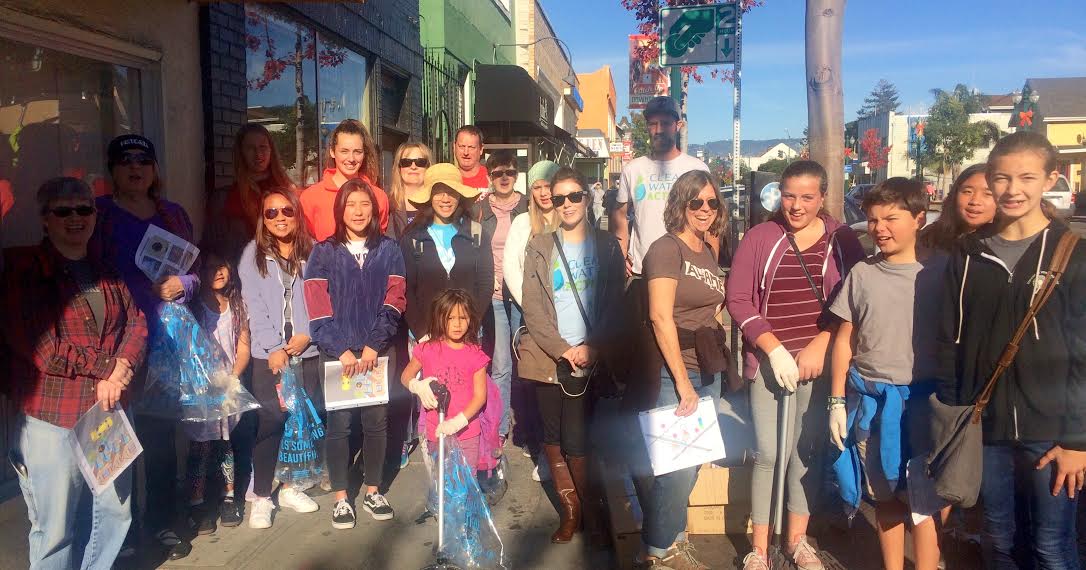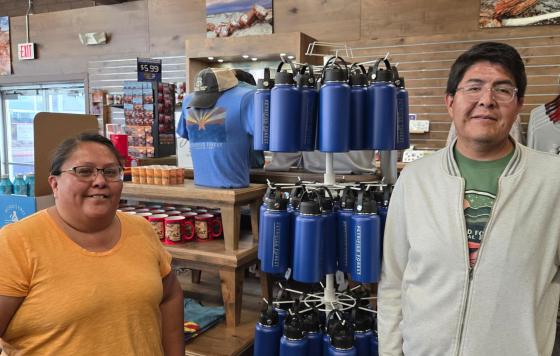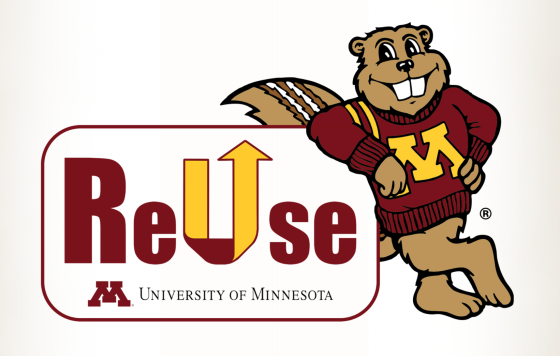
Here at ReThink Disposable, we like to prove the impact of our work. We also like to get local community volunteers involved in our program. Over the past few months, we have been doing just that.
Earlier this year, Clean Water Action’s ReThink Disposable California program received a $400,000 grant from the California Ocean Protection Council to create a demonstration pilot project to “unpackage” a San Francisco Bay Area community and we selected the City of Alameda, an island, to be the model community to go disposable packaging free. We have an ambitious goal to engage and certify 100 food businesses on the island to implement cost saving practices to reduce single-use disposable packaging – like cups, sleeves, lids, straws, condiment packets, and food containers—that generate too much waste and becomes litter that pollutes the coastline. We are offering businesses free technical assistance and financial support to help them reduce unnecessary disposables and transition to reusables. We know that these litter prone packaging items can easily end up in waterways, bays, and oceans, affecting wildlife and public health. I don’t know about you, but we love to keep our beaches and oceans free of trash, primarily from plastics.

We want to demonstrate the effectiveness of the ReThink Disposable food business certification program on reducing litter prone disposable food service packaging that ends up in our streets and the environment. We are counting and characterizing the litter on the busy commercial downtown street now, and then will come back in a year to recreate the same litter study of disposable food packaging after 100 new businesses become ReThink Disposable Certified to see if there has been a measurable reduction of litter over time in the downtown commercial district.
Over two dates, volunteers were trained, picked up food packaging items they found in the street litter, and documented it with an app called Litterati. When a volunteer found a piece of litter on the sidewalk or between the curb and car in their assigned map area, they took a photo of it, and coded the litter using a list of defined hashtags to show the material, product, and brand. Another volunteer then picked up the item and placed it in a trash bag. We had an amazing group of 24 volunteers between the two events to support our data gathering process.

Now we get to analyze the data, sign up and certify 100 businesses on the island, and then come back in a year’s time to see if we reduced litter in the streets from the food businesses! We’re excited to see what we can achieve in Alameda as they become the model community to demonstrate how choosing to reuse can really make a difference on reducing environmental pollution and shift our attitudes and culture of fast-paced, throw-away convenience products that are polluting water, the ocean, wildlife, and even our bodies! Stay tuned for more information as we dig through the data and share results from the litter survey, as well as, positive stories from new business champions on the island!


